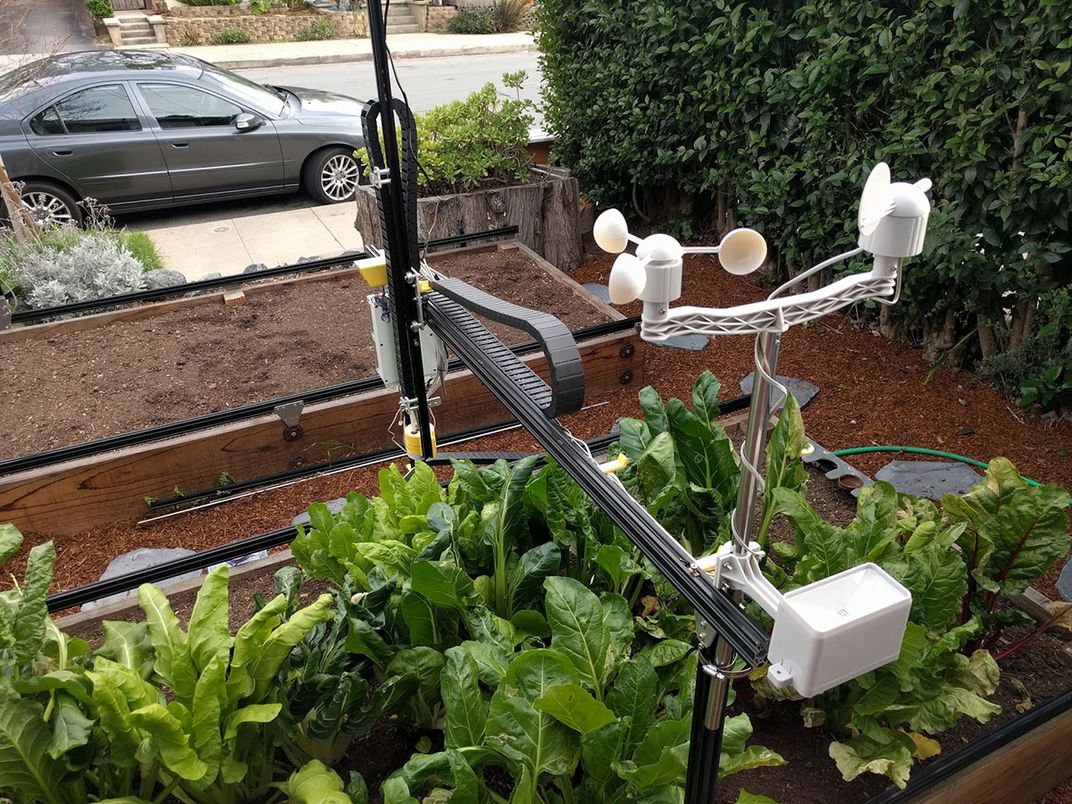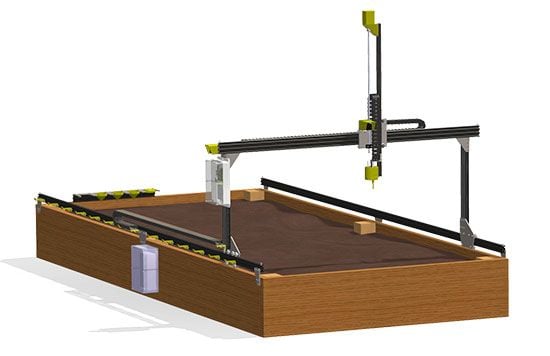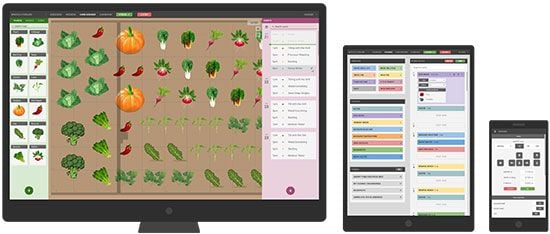The FarmBot Genesis Brings Precision Agriculture to Your Own Backyard
Developed by a team from California, this machine plants seeds, pulls weeds and waters plants individually
/https://tf-cmsv2-smithsonianmag-media.s3.amazonaws.com/filer/44/b1/44b103aa-cee7-4ffb-a023-39883ab8fb25/farm-bot.jpg)
Drones may ultimately help change the face of agriculture, as we saw in action at the AgBot Challenge in Indiana last month, but it's not just commercial farming that could benefit from autonomous robots. Case in point: FarmBot, whose autonomous kits called Genesis will be available for pre-order this week, simply wants to oversee your home garden.
Its ambitions might be smaller than the contraptions that can remotely plant miles of seeds, but Genesis looks incredibly impressive. Developed by a team of three from California, the kit is an autonomous machine that’s installed atop and around a small garden—in your backyard, on a rooftop, or inside a greenhouse or lab. Once built, Genesis performs nearly the entire gardening process prior to harvesting, including planting the seeds, watering each plant precisely and on a set schedule, monitoring conditions, and pulverizing pesky weeds. Check out how it works:
As the trailer shows, Genesis slides along tracks installed alongside the garden box, with the main arm also shifting left and right and popping down into the soil to perform its various functions. Once given instructions, FarmBot can be left to its own devices to follow the planting and watering schedules you picked until the veggies are ready to harvest.
While it’s a pretty high-tech contraption, the interface is very simple. The Internet-connected FarmBot is controlled via a web app that uses a Farmville-esque visual grid, letting you drag and drop the kind of plants you want into your digital garden. Genesis has 33 common crops loaded into its software so far (artichokes, chard, potatoes, peas, squash, etc) and it automatically spaces the varying plants appropriately, taking the guesswork out of having a diverse garden. And the app can be accessed from a computer, phone, or tablet, so you can tweak your plan from anywhere and send it to your backyard ‘bot.
What’s surprising is that Genesis is a fully open-source project. That means that the creators have released the source code for the software and the blueprints for all of the hardware pieces, so coders and engineers can easily modify Genesis and build their own parts. Many components can be made using 3D printers, and the software can be tweaked to add features—or improve those implemented by the company.
That open approach and focus on expandability also means that you can personalize Genesis for your garden layout and needs. For example, you can hook up a solar panel to power the ‘bot, or use a rain barrel to irrigate rather than connect a hose. Genesis is also something of a meteorologist: It monitors real-time weather conditions to better manage your garden.
Genesis is the first commercial version of this autonomous gardening idea, allowing for planting spaces up to 2.9 meters × 1.4 meters, with a maximum plant height of 0.5 meters. It’s an all-in-one kit with nearly everything you need to get started, including all the metal and 3D-printed pieces—the nozzles, motors, belts, and pulleys—a Raspberry Pi 3 computer, and plenty more. You’ll need to build your own planter bed following the specifications, as well as provide the water, electricity, and Internet sources. Programmer or engineering know-how not required: The kit comes with a step-by-step guide. If you can get through an IKEA furniture setup, you should be able to put together Genesis (fingers crossed). But if you’re a techie, you can do much more with it if you want.

The Genesis kit will begin pre-orders this Friday, July 1, although it’s unclear when FarmBot will start shipping—or exactly how much the kit will cost. A blog post on their site last week suggests that the all-in starting expense for Genesis will be about $3,500, but that includes things like shipping, infrastructure, soil, and other setup expenses. Meanwhile, a report from New Times SLOsuggests that the kit itself will be sold at about $2,900, but creator Rory Aronson says they hope to eventually get the cost closer to $1,000 down the line.
It might be a pricey buy-in for now, but the Genesis kit is for early adopters who want the entire thing ready to install—and don’t mind riding the early wave of untested technology. Given the open-source approach, don’t be surprised if you can eventually buy different kinds of kits and supplement them with your own parts, expand upon the core kit with your own extra hardware, or even build your own FarmBot from scratch.
FarmBot’s documentation hints at ambitions for larger-scale farming ‘bots (imagine this technology on acreage!), so the Genesis kit could be just the beginning for this high-tech farming revolution.
More stories from Modern Farmer:
This story originally appeared on Modern Farmer.



